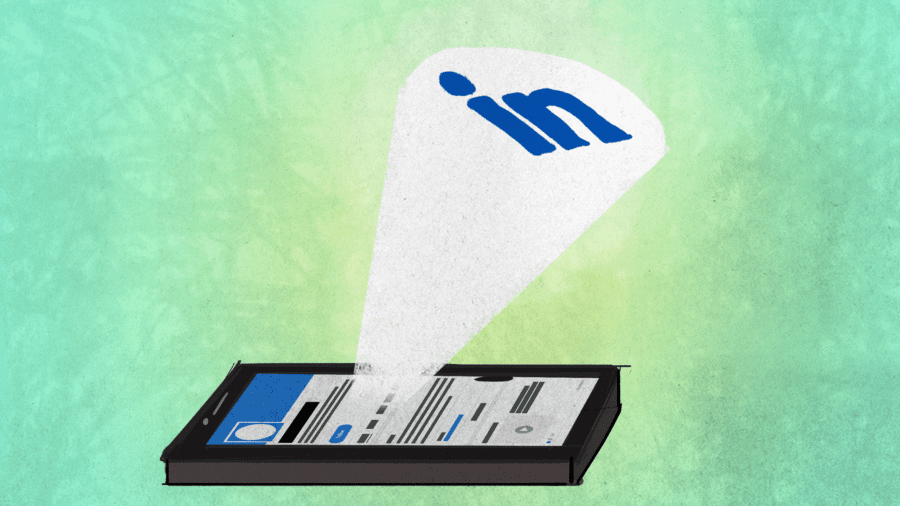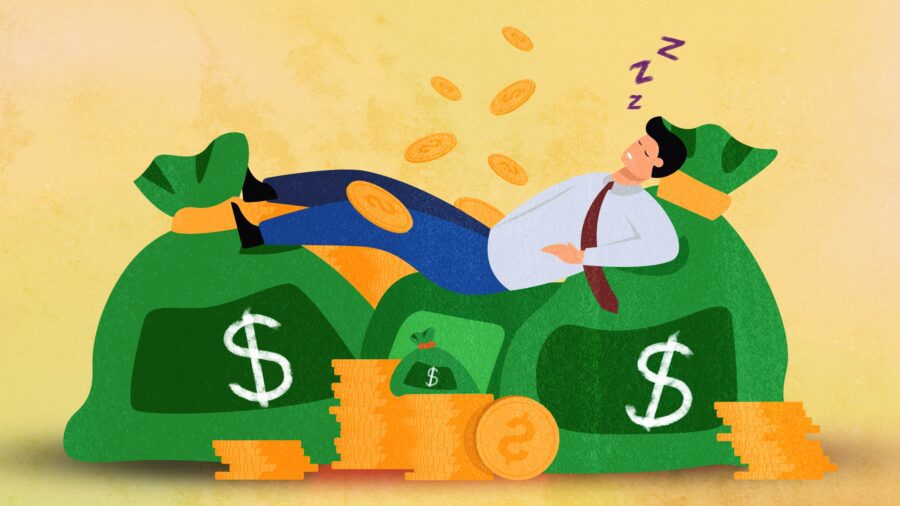
9 Signs You Have Imposter Syndrome at Work and How to Overcome Performance Insecurity
“No one can make you feel inferior without your consent.” – Eleanor Roosevelt
Overall, how would you rate your confidence in your ability to effectively fulfill your job duties at work? Perhaps you would give yourself an 8 — confident, but cognizant of the fact that there is always room for improvement — or maybe you’d score yourself at a 4 because you don’t feel like you deserve the position you’re in. Low self confidence, especially within the workplace, is a strong indicator that you are suffering from imposter syndrome.
To examine this further, let’s imagine a hypothetical scenario. Let’s say you have been promoted to a manager at your office, putting you directly in charge of eight of your coworkers. You have both the education and experience to excel in this role, and your superiors have full confidence in you. However, despite this, you still feel anxious that you will fail at your job because you are not knowledgeable enough to lead effectively.
Now let’s jump to another hypothetical scenario. Imagine you are an accomplished executive at the advertisement firm you’ve been employed at for six years. However, regardless of your success, you have a difficult time starting new projects for fear that the smallest of mistakes will expose you as a complete fraud — something you’ve secretly thought about yourself ever since you started the job.
Why would such a successful and accomplished individual have such low self confidence? How do you overcome such negative views of yourself? Both of these scenarios are examples of someone who is suffering from imposter syndrome, and it is much more common than you might think. In this article, we examine some common signs that may indicate you have imposter syndrome and how to effectively work through performance insecurity.
Join In 500 Million+ On The Journey to Greatness
What Is Imposter Syndrome?
Impostor syndrome is not a new phenomenon. It was initially discussed by researchers Pauline Clance and Suzanne Imes in the late 1970s, despite the fact that the phrase has just lately become popular in leadership circles.
Within the study, imposter syndrome describes an insufficiency pattern seen in graduate students. Some individuals expressed emotions of “intellectual phoniness,” as if they “lucked out” or deceived someone into thinking they were smart and qualified despite outward indications of success. Around 70% of people will say they experience imposter syndrome at some point in their lives, according to studies.
It might be challenging to avoid feeling insufficient at times in the fast-paced workplace of today where there is always something new to learn or a new skill set to perfect. Also, social media and digital technologies make it simpler than ever to compare our achievements to those of others, which feeds a vicious cycle of self-doubt.
You may have imposter syndrome if you frequently doubt your abilities, even in situations where you normally perform well. Imposter syndrome can cause anxiety and restlessness, can also show up as critical self-talk, and frequently comes with anxiety and depressive symptoms.
There is no recognized medical diagnosis for imposter syndrome, therefore it cannot be categorized as a form of mental illness. Rather, the phrase is most often used to refer specifically to achievement and intelligence while it also has associations with social environment and perfectionism.
Different Types of Imposter Syndrome
Imposter syndrome can be broken down into five different categories, detailing the different ways in which individuals feel insufficient in their abilities.
The Perfectionist
This kind of imposter syndrome comprises the conviction that you could have performed better if you weren’t absolutely perfect. Because of your perfectionistic tendencies, you feel like a fraud since you don’t think you’re as good as people think you are.
The Expert
Due to the fact that they do not possess complete knowledge of a particular area or subject or have mastered all of its steps, the expert feels like a fraud. They don’t feel as though they have attained the status of “expert” because they still have more to learn.
The Natural Genius
Were you ever called a “gifted child” growing up because you appeared to catch on to things quickly? This imposter type focuses on individuals’ fears that if they do not do something perfectly on the first try, they are a failure. They feel like a fraud because they do not believe they are naturally competent or intelligent.
The Soloist
People who fall under this imposter syndrome category usually reached their level of status because someone helped them get there. They fear that since they did not reach their level all on their own, they doubt their abilities and competence.
The Super
The super indicates that a person will feel inadequate or incompetent in their abilities unless they are the hardest worker and achieve the most success over all of their peers. They feel that if they do not accomplish this, they are a fraud.
Let’s get one thing out of the way — everyone receives a helping hand at some point in their career, no one is a genius at everything, and you can’t do everything perfect on your first try. Life is all about learning and growing, and you can accomplish neither of these if you are perfect at all times. Now that you have a well-rounded understanding of what it is, let’s take a look at nine common signs you are suffering from imposter syndrome.
- You Overwork
Rest is important! More than anything else, you are simply not going to be a good employee if you are constantly overworking yourself. If you are suffering from imposter syndrome, you may feel obligated to overwork to cover up your own feelings of inadequacy and, therefore, manage your time poorly.
- You Downplay Your Abilities
Hey, modesty is a good quality to have — but in moderation! If you are constantly downplaying your own skills and knowledge, not only are you reinforcing to your brain that these thoughts are real, but you will likely try as hard as you can to show others that you are valuable. This may include getting as many certifications or diplomas as possible to overcome your own feelings of inadequacy.
- You Are a Perfectionist
Again, there’s nothing inherently wrong with wanting your work to reflect your abilities. When you like your job, it makes sense that you would want your superiors to be impressed with your work. However, if you are constantly looking over every detail in every single thing you do to ensure it is absolutely perfect, it may stem from a place of feeling incompetent.
- You Constantly Seek Feedback
External validation feels good. It’s nice to know that your peers agree with your viewpoints or find value in your contributions. However, if you constantly seek validation for every little thing you do, it could be because you feel like you’re not enough.
- You Constantly Compare Yourself to Others
If you compare yourself to others too often, you could end up feeling inadequate in your abilities. People who fall under this category usually find themselves focusing on why someone got a promotion, more money, or a better qualification than they did. They want to be the best in the room … in every room.
- You Lack Confidence
Even if you have achieved many accomplishments and high success within your industry, imposter syndrome can cause you to feel totally inadequate and undeserving of your position, leaving you feeling afraid of being seen as silly or ignorant.
- You Struggle Under Pressure
When the pressure comes on, many people either thrive or buckle. Intense pressure at work can either push you to perform even better or cause you to feel increased anxiety and fear failure even more. When you have imposter syndrome, the latter rings true most of the time.
- You View the World in Extremes
People who fall under this category are incapable of seeing the gray area between black and white. They are either the best or they are the very worst. If they take an exam, they either perform perfectly or the worst they’ve ever done.
- You Need to Please Others
People who fall under this category tend to focus too much on what others want and prioritize positive feedback. They let their own needs and goals go unmet because they are constantly looking to please other people.
How to Overcome Performance Insecurity
Imposter syndrome usually focuses on your own fears and insecurities, causing you to feel like you aren’t good at your job even if you are. One way to overcome this is by focusing on the facts.
Focus on the Facts
Some people call this method “facts vs stories.” If facts are observable, concrete truths that can be recorded on a camera, stories are how we interpret those facts. Unfortunately, we can’t keep ourselves from interpreting the facts we observe. However, we can center ourselves on the facts and avoid focusing on how we interpret things. For example, if your imposter syndrome is forcing you to focus on something you said in a meeting because it made you anxious, shift your focus toward what your peers actually said in the meeting.
Reframe Your Thoughts
Our thoughts have power. Our perspective on the world has the ability to influence our reality—both positively and negatively. If you frequently have negative thoughts, consider observing your inner voice and changing it as needed. Although you won’t see improvements right away, using this technique over time will help you view things more positively.
For instance, instead of thinking, “That was absolutely terrible,” the next time you make a mistake, try thinking, “That wasn’t my best work, but I’ll do better next time.” You may rewire your brain to be more supportive by changing the way you speak to yourself.
Learn From Your Peers
Comparing yourself to your coworkers and believing you are less competent than they are at your job is a typical imposter syndrome symptom. While it may be tempting to compare yourself to others, there are several things you can do to reframe these emotions. Try to take a step back the next time you are tempted to compare yourself to your peers and instead focus on what you can learn from them.
The truth is that your team will likely include folks who are stronger in some areas than you are, and vice versa. This is perfectly normal. It doesn’t make you any less deserving; rather, it gives your team the chance to grow and thrive in your roles by learning from one another.
Acknowledge and Celebrate Your Own Greatness
Do not forget that if you feel like an impostor, it signifies that you have had some level of achievement in your life, which you attribute to luck. Instead, make an effort to transform that emotion into thankfulness. Take stock of your life’s accomplishments, and express gratitude for them. Celebrate yourself!
Let go of your concern over being exposed. Instead, embrace that emotion and explore its causes. Drop your guard, and let people get to know the real you. That way, you’re already ahead of the game of overcoming imposter syndrome.
Greatness Authors
Greatness Authors is a collection of writers, thinkers, curiosity experts, and students of the world who are committed to bringing you the most up-to-date, impactful, and inspiring information surrounding Greatness topics.

15 Insightful Questions to Ask at Your Next Networking Event That Will Boost Your Credibility

The Young Professional’s Guide to Advocating for Yourself at Work & Setting Healthy Boundaries

A Beginner’s Guide to Amplifying Your Personal Brand on LinkedIn Using Creator Mode

Women & Business: 13 Eye-Opening Statistics That Prove We Need More Women in Executive Roles

A Beginner’s Guide to Effortlessly Attracting Money and Growth Opportunities










